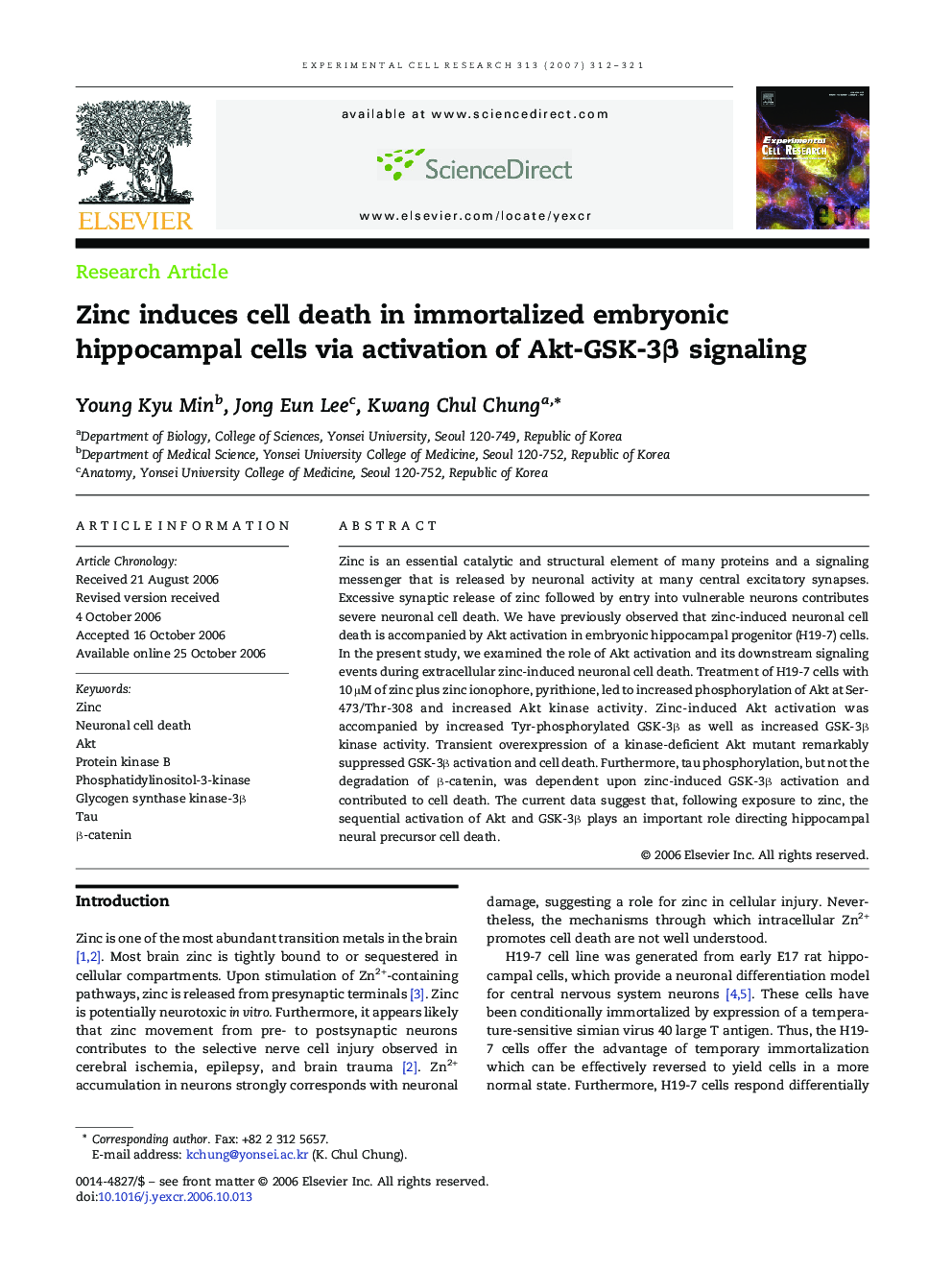| Article ID | Journal | Published Year | Pages | File Type |
|---|---|---|---|---|
| 2132643 | Experimental Cell Research | 2007 | 10 Pages |
Zinc is an essential catalytic and structural element of many proteins and a signaling messenger that is released by neuronal activity at many central excitatory synapses. Excessive synaptic release of zinc followed by entry into vulnerable neurons contributes severe neuronal cell death. We have previously observed that zinc-induced neuronal cell death is accompanied by Akt activation in embryonic hippocampal progenitor (H19-7) cells. In the present study, we examined the role of Akt activation and its downstream signaling events during extracellular zinc-induced neuronal cell death. Treatment of H19-7 cells with 10 μM of zinc plus zinc ionophore, pyrithione, led to increased phosphorylation of Akt at Ser-473/Thr-308 and increased Akt kinase activity. Zinc-induced Akt activation was accompanied by increased Tyr-phosphorylated GSK-3β as well as increased GSK-3β kinase activity. Transient overexpression of a kinase-deficient Akt mutant remarkably suppressed GSK-3β activation and cell death. Furthermore, tau phosphorylation, but not the degradation of β-catenin, was dependent upon zinc-induced GSK-3β activation and contributed to cell death. The current data suggest that, following exposure to zinc, the sequential activation of Akt and GSK-3β plays an important role directing hippocampal neural precursor cell death.
